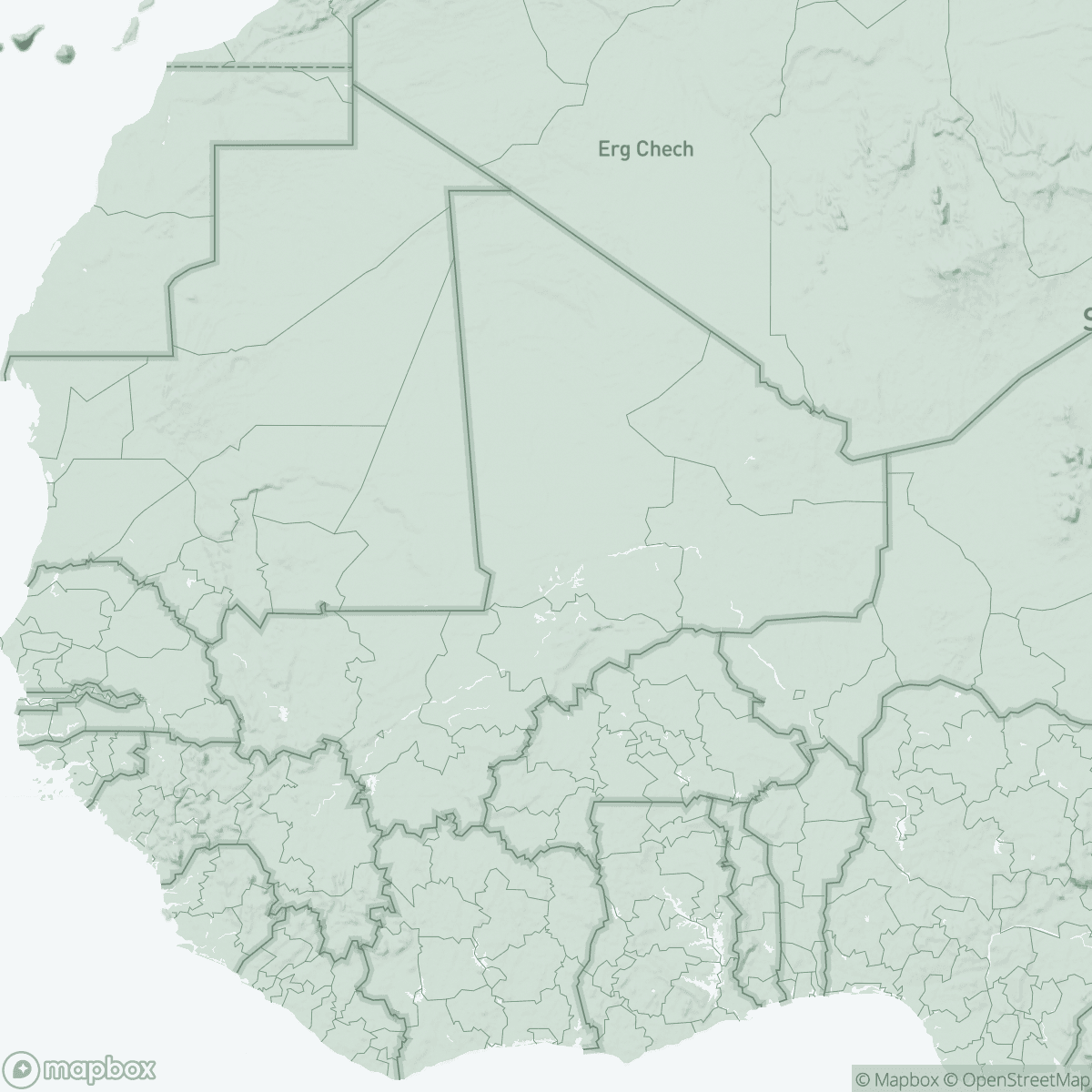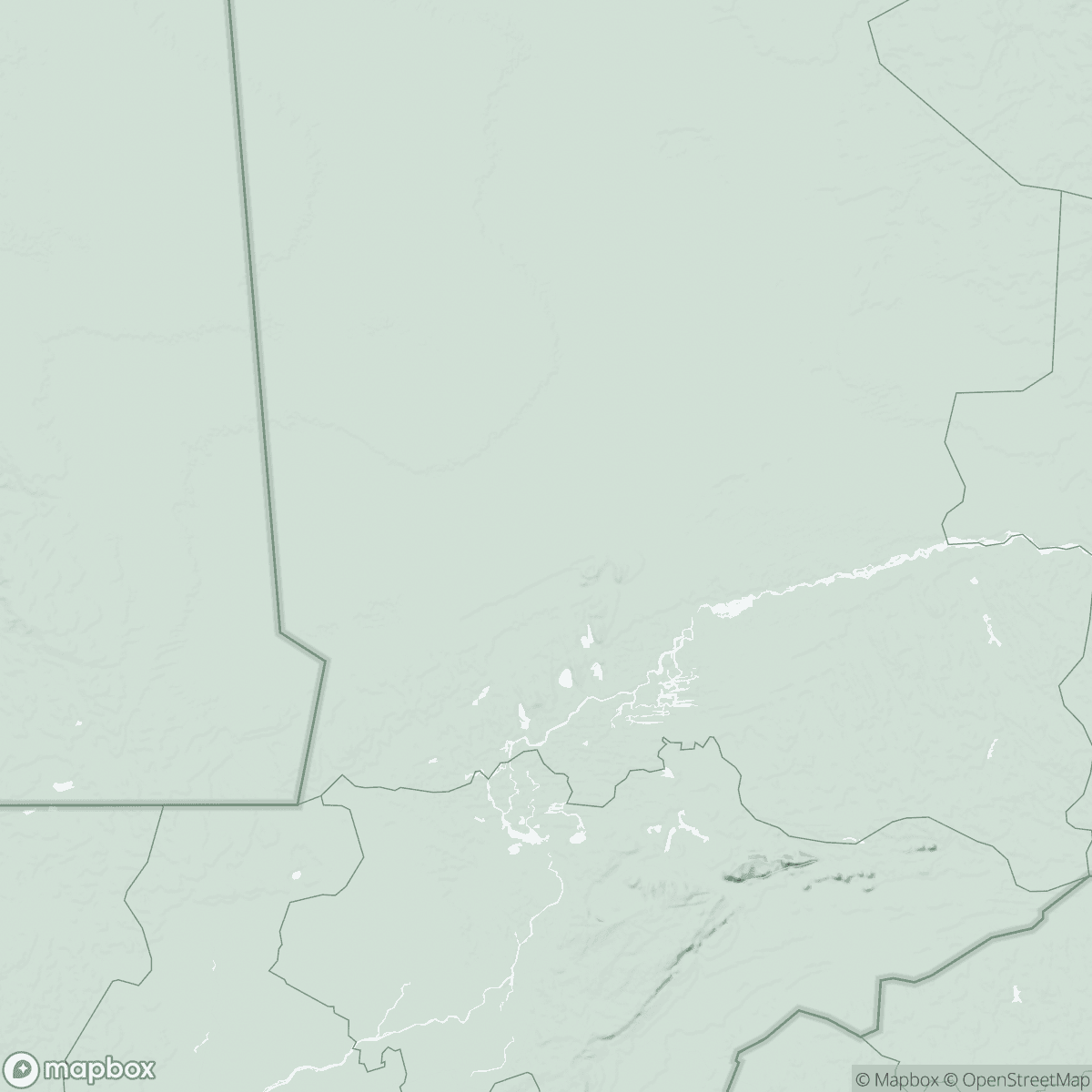
Cancer in Mali: “My hope is to be able to treat women in time”
In 1 click, help us spread this information :
In late 2018, MSF teams and Mali’s health authorities began working together on an oncology project to improve diagnosis and treatment of breast and cervical cancers, which account for most cancers for both sexes combined.
A race against time
As a doctor in the referral health centre in Bamako’s VIth commune – one of the capital’s most densely populated – Dr Mama Sy Konaté and her team of midwives are in a race against time to beat the cancers in recent years she’s seen affect more and more patients. In Mali as in other countries, the chances of remission increase if the disease is diagnosed in its early stages. “My hope,” says Dr Mama Sy Konaté “is to find out that women have cancer sufficiently early to be able to treat them in time and help them recover. My hope is to prevent deaths and give a chance to all the women who’d like to have children.”
There’s still a long way to go, as most women in Mali diagnosed with cancer are in the advanced stages of the disease. This was the case of Mariam Dicko from Mopti. Mariam died of breast cancer in January.
Mariam found out she had cancer a little over three years ago, when the tumour was already quite large. After a first round of surgery in Mopti, she decided to go to Bamako with the little money she’d scraped together from friends and relatives, but which quickly ran out after paying for specialist consultations, medical tests and a second surgical procedure. No longer able to pay for her treatment and abandoned by her husband, Mariam ended up alone. She told us she felt she’d “become one problem too many, a burden everyone was trying to avoid”. So, she decided to “knock on every door in the hope of being able to reach people of goodwill”. Her messages on the radio put her in contact with MSF and, in 2021, she became one of the patients treated in our project.
Early diagnosis is key to reversing the trend and preventing far too many women dying from cervical and breast cancers. Nene Sow, who has been a midwife in Gabriel Touré hospital for many years, is a staunch supporter of the cause.
“Informing women so that they know what cancer is and encouraging as many as possible to come for screening is an important part of my job. We didn’t wait for Pink October to get started,” Nene Sow continues “but last October’s campaign helped us to reach a lot more women. Not so long ago, I’d see patients unable to complete their treatment because they couldn’t afford imaging, consultations, hospital expenses, surgery and some of the drugs. When we’d ask them to get lab tests, some women took off and didn’t come back to the hospital because the cost was prohibitive. But MSF’s support is changing all that.”
Improving early diagnosis requires informed communities, trained health workers, equipment and tests patients can afford.
In a country where over 40 percent of the population live in extreme poverty with less than 1.70 euros a day, a scan can cost the exorbitant sum of over 100,000 CFA francs, i.e. approximately 152 euros. This is why MSF’s project also pays for examinations for patients with suspected cancer.
Point G University Hospital has the only laboratory in Mali with the capacity to analyse biopsies and diagnose cancers. Professor Cheick Boukadary Traoré is in charge of the laboratory, which was refurbished last year with support from MSF. He describes his work. “My job is to analyse samples to ensure precise diagnoses in cases of suspected cancer. Our post-surgery tests also examine the appearance of organs, tissues and cells, which helps to evaluate treatment”.
He insists that the disease doesn’t have to mean a “death sentence. With the joint efforts of the Ministry of Health and Médecins Sans Frontières, we now have the resources to save some women – as long as the cancer is treated in the early stages.”
“It isn’t a disease to be hidden away”
Being diagnosed with cancer can be a real bombshell. "I thought I was going to die. I hid myself away to cry so that my children wouldn’t see me," recalls Faye Koudiata Kanté President of patient association Les Combattantes du Cancer and the National League against Cancer.
Modibo Cissé works as a psychologist for the MSF project. He sees 3 or 4 patients a day in his office in Point G University Hospital, organises group sessions and makes home visits. The doctors regularly call on him when they give their diagnoses, a patient in the wound dressing room is emotionally upset, or when a patient and her relatives are given bad news.
He believes the “the patient’s family has an essential role. She’s going through a life-changing experience and needs their support. One of my objectives is to contribute to ensuring the quality of this support, that the patient is integrated socially because there are still negative beliefs about cancer, that it’s the result of a curse. We have to explain that it’s like any other illness, that it isn’t contagious. I also often advise patients to be open to expressing their feelings throughout their journeys – even though it can be difficult – and to share their emotions so that they can be supported”.
Testimony from Faye Koudiata Kanté :
“I had a breast removed because of cancer. I first thought an ant had bitten me. When I realised part of my breast was swollen, I went to the hospital and they told me it was cancer. That was hard. During the consultation I couldn’t stop looking at the pile of files on the oncologist’s desk. He said, oh yes, and that’s nothing compared to all the cases that go undiagnosed.
That day I promised myself that if I recovered from the disease I would set up an association to inform women. It was because I didn’t know enough that I ended up having my breast removed. I didn’t want the same thing happening to other women, our daughters or our great-granddaughters. The association was created on February 4, 2016 and since then we’ve been sharing information about the disease and screening. We don’t have the resources to do more, but if we did, we’d help women pay for their treatment. We raise awareness on TV and the radio, during weddings, baptisms and funerals and go door-to-door. It isn’t a disease to be hidden away.”
Comprehensive treatment package
MSF’s project includes accompanying patients throughout their therapeutic journeys to ensure they receive a comprehensive treatment package they don’t need to pay for. Working with Ministry of Health personnel, we administer chemotherapy and cover the cost of surgery and radiotherapy. Palliative care, nursing supervision of tumour wounds, mental health services and social support form an integral part of MSF’s assistance.
Zeinebou Tapa Danyoko works with MSF in Point G hospital’s haematology-oncology department. Around 15 patients with cervical or breast cancer come for chemotherapy every day.
“The first time, they’re often really panicky and frightened," the nurse says. “I do my best to explain what’s happening and reassure them. When necessary, I get the psychologist involved. I love helping women who’re like me, supporting them through a difficult time, taking care of them. Women with cancer mustn’t lose heart and give up. Quite the opposite, in fact. It's also important they discuss it with relatives, talk to their mothers, sisters and their friends and encourage them to come for regular screening.”
In 2021, 645 women were diagnosed with breast and cervical cancers and received help from MSF with examinations and treatment. MSF’s project either administered or paid for 1,910 chemotherapy and 105 radiotherapy sessions and 119 surgical procedures.
The international Agency for Research on Cancer uses data in the national cancer register on the district of Bamako and epidemiological models to generate estimates for the population as a whole. According to the Agency, 4,400 of around 14,000 new cases of cancer in 2020 were breast or cervical cancers. Tragic realities lie behind what are still under-estimated statistics, but the mobilisation of health workers and patients in the fight against cancer is very real – a fight that must be intensified, which will not be achieved without additional support.













